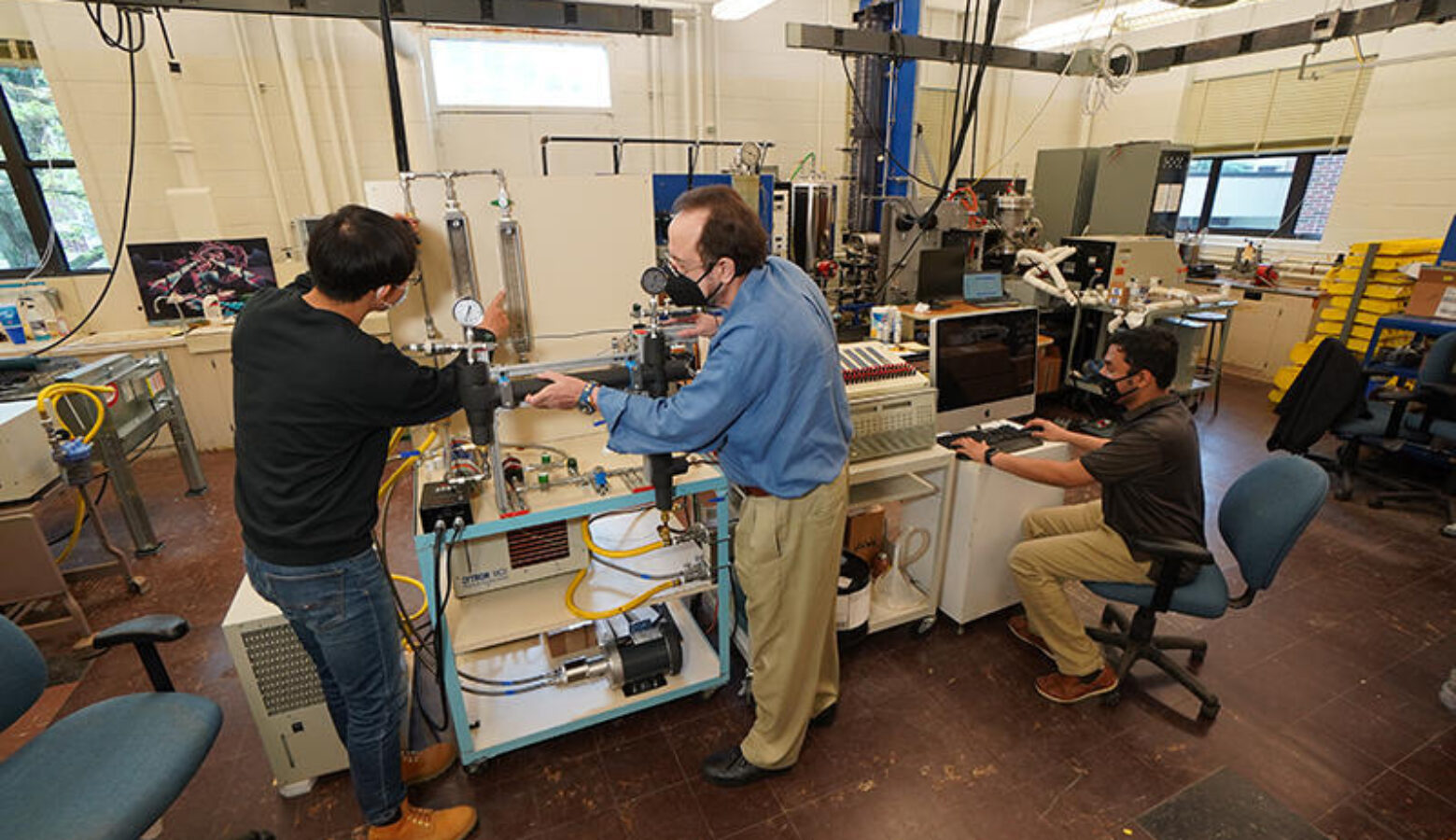Purdue cable aims to charge electric cars in less than five minutes

Purdue University engineers are working on a cable that could charge electric vehicles in less than five minutes. Right now, even the fastest chargers on the market take at least 20 minutes for a full charge.
That’s because the higher the current, the more heat needs to be removed from the cable. If you don’t have something that can remove enough of that heat:
“It’s gonna melt the cable. You know, so it’s a serious matter. It’s a safety matter, it’s a practical matter,” said Issam Mudawar, professor of mechanical engineering at Purdue.
Purdue researchers’ cable prototype uses a different cooling method that allows them to have a current more than four times greater than the quickest chargers on the market.
“Let’s look at it as a hose, OK? The charging cable as a hose within which you have the conductor that carries the electrical current,” Mudawar said. “So we’re passing liquid coolant around it within that hose — within the charging cable — to extract the heat. And the way it does that is by undergoing a process called phase change. Phase change meaning the liquid, in part, turns into vapor and forms tiny little bubbles from within. This process is extremely effective from a heat transfer standpoint and it enables you to dissipate very large amounts of heat while maintaining acceptable temperatures.”
Mudawar said many people who have electric cars complain about the long wait time to charge them.
“The charging time is very frustrating. You know, sitting at the station for 20 minutes — sometimes much longer — to charge the car when you’re on a highway. You know, obviously that is very uncomforting,” he said.
READ MORE: INDOT, Purdue to create road that charges heavy trucks, cars as they drive
Purdue has a research and development alliance with Ford Motor Company. The company said speeding up the charging time could get more people to adopt electric vehicles.
Mudawar’s team hopes to test their cable prototype on electric vehicles in the next two years. In order for the cable to work, the battery and the power supply would also have to be able to handle the much higher current.
Mudawar said this cooling technology has already been used to cool down computer data centers, aircraft circuit boards, and is even being tested at NASA’s International Space Station.
He said he sees many technology manufacturers spending a lot of money developing products, but not really thinking about how to dissipate heat until much later on. Mudawar said making heat an afterthought is a costly mistake.
“Electronics are plagued by thermal problems — and every year you hear of one or two or three systems that have been developed only to face thermal problems and overheating later on and have to be withdrawn from the market,” he said.
Contact reporter Rebecca at rthiele@iu.edu or follow her on Twitter at @beckythiele.
Indiana Environmental reporting is supported by the Environmental Resilience Institute, an Indiana University Grand Challenge project developing Indiana-specific projections and informed responses to problems of environmental change.


